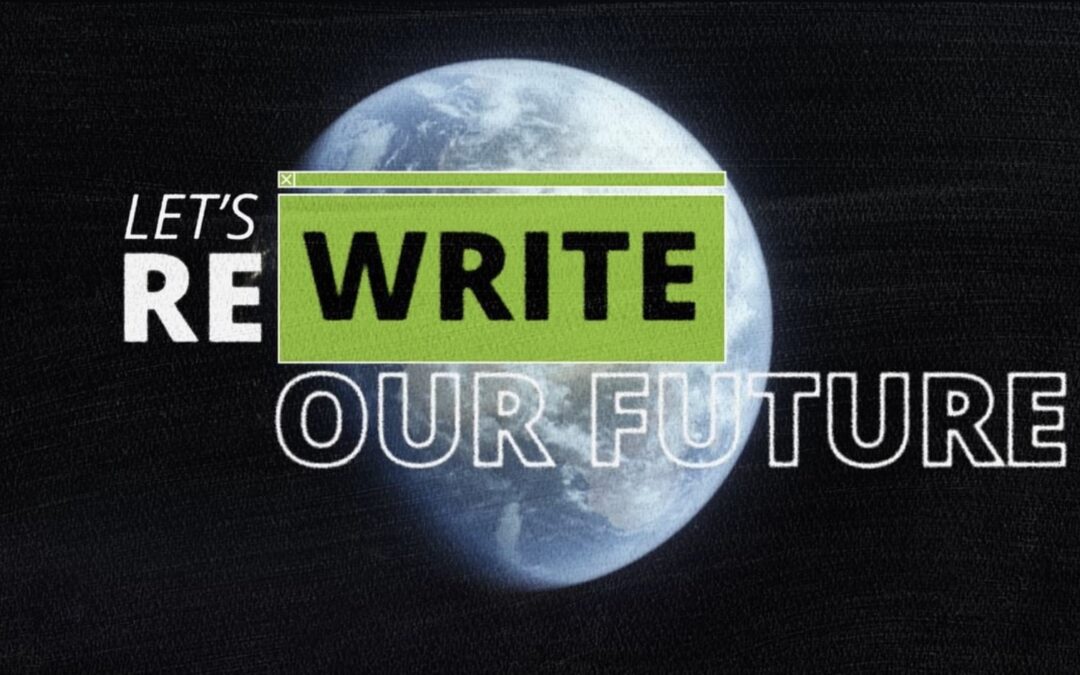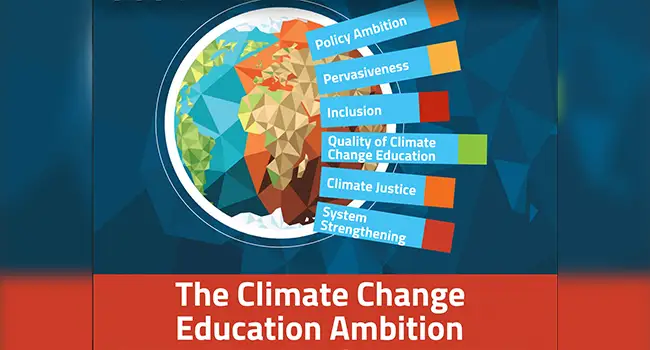The Time to act for the Planet is now
World Bank Press Release on Education Crisis across countries
More than two years into the COVID-19 pandemic, we are witnessing a colossal loss to children’s learning. Less than half of countries are implementing learning recovery strategies at scale to help children catch up. Unless all countries implement and expand programs in the coming months, they risk losing a generation.
“With a combined 2 trillion hours of in-person school lost due to school closures since March 2020, students in more than 4 in 5 countries have fallen behind in their learning. Less well-off children have seen their learning falling back. In particular, the most marginalised – those living in poverty and rural areas, children with disabilities, and the youngest students – have fallen the furthest behind.
“Basic, foundational skills upon which every aspect of education is built have been erased in many countries. Children have forgotten how to read and write; some are unable to recognise letters. Children who were poised to start school for the first time never got the chance to learn these skills in the first place, as early childhood education disappeared in most countries. Without urgent remedial action, this could carry serious lifelong consequences in terms of health and well-being, future learning and employment.
“And yet, our March 2022 data show that less than half of countries featured in a new analysis published today are implementing learning recovery strategies at scale to help children catch up on what they’ve missed. Only half of low-income countries have a plan in place to assess where those who have returned are at in their learning.
“At a time when it’s needed the most, education funding has and continues to fall desperately short. Countries allocated on average 3 per cent of their COVID-19 stimulus packages to education. In low- and lower-middle-income countries, the allocation was less than 1 per cent.
“While countries scramble to recover, they are overlooking the single, most-effective long-term recovery and sustainability tool – education.
“Governments must double down efforts get every child into school. Education is a fundamental human right. The multiple and intersecting barriers – including poverty, cultural norms, and poor quality teaching – preventing children from accessing their education must be broken down. Every child needs to be assessed on their learning and based on the results, they must have access to quality, tailored, catch-up classes to recover what they’ve lost and beyond. Teaching should be adjusted to the level they currently are at in their learning. Teachers must be given the training, support and resources they need. And finally, schools must go beyond places of learning and support children’s well-being and safety.
“This is a now-or-never moment to act and transform education in order to save this generation and the only way out is through Climate Change Education.
Climate change, biodiversity loss and pollution have led to a planetary crisis that requires an urgent response. UN Secretary-General António Guterres calls the climate crisis ‘a battle for our lives’, as we struggle to transform our societies to reach the 1.5-degree path recommended by the Paris Agreement. In an increasingly complex and interconnected world with a real, existential threat such as climate change, there is a growing call for education to enable individuals, as agents of change, to acquire knowledge, skills, values, and attitudes that lead to for the green transition of our societies, as enshrined in SDG Target 4.7, and, indeed, in the entire 2030 Agenda.
To respond to the urgent calls for action from young people to ensure every learner is equipped to tackle climate change and to promote sustainable development, as enshrined in the Sustainable Development Goal Target 4.7, UNESCO and UNFCCC are launching a series of monthly conversations on climate change education for social transformation. This series builds on the success of the ‘On the road to Berlin’ series of 7 online workshops between 2020-2021 which brought together over 15,000 stakeholders to discuss cutting-edge ESD issues.
UNESCO-UNFCCC’s Webinar Series consists of 8 webinars for this season, one on the last Tuesday of every month from April to November, on the road to COP27 to be held in Sharm El-Sheikh, Egypt from 7 to 18 November 2022.
The series is organized as part of the Action for Climate Empowerment (ACE) Hub, an initiative launched by UNFCCC and the German regional government of North Rhine-Westphalia in 2022 to foster education and public awareness, training, public access to information, and participation in climate change action.
Tune into the first season, dedicated to the goal of greening every education policy and curriculum to be climate ready. Each episode will explore the critical role of climate change education, and how to harness its transformative power, in leading up to COP27.
The climate crisis is the greatest threat facing humanity and our planet. With little time left to reverse the current course and keep global temperature rise below +1.5°C, climate action is more urgent than ever.
Education must be transformed to catalyse the fight against climate change and to support a just transition to a more sustainable world.Students have a right to gain the knowledge, skills and attitudes necessary to sustain our world for present and future generations, and they have the right to receive an education which prepares them for the world of work in a green economy. It is time to come together to build something more resilient in our education institutions, our communities, and our economy, while considerably reducing our ecological footprint through a just transition.
Cargo airlines have canceled all flights in and out of the city, and more than 90% of trucks supporting import and export deliveries are currently out of action.
Shanghai produces 6% of China’s exports, according to the government’s statistical yearbook for 2021, and factory closures in and around the city are further rattling supply chains.
Sony and Apple supplier plants in and around Shanghai are idle. Quanta, the world’s biggest contract notebook manufacturer and a MacBook maker, has stopped production entirely. The plant accounts for about 20% of Quanta’s notebook production capacity, and the company previously estimated it would ship 72 million units this year. Tesla has shuttered its Shanghai Giga factory, which produced about 2,000 electric cars a day.
On Friday, China’s Ministry of Industry and Information Technology said in a statement that it sent a taskforce to Shanghai to work on a plan to resume production at 666 key manufacturers in the locked down city. Tesla executives hope they’ll be allowed to reopen their doors by Monday, ending the factory’s longest pause since its 2019 opening. The automaker has lost over 50,000 units of production thus far, according to materials reviewed by Reuters.
“The impact on China is major and the knock on effects on the global economy are quite significant,” said Michael Hirson, Eurasia Group’s practice head for China and Northeast Asia. “I think we’re in for more volatility and economic and social disruption for at least the next six months.”
The prolonged disruptions to Chinese manufacturing and shipping could help accelerate a key Biden administration initiative aimed at reducing US dependence on Chinese products and supply chains.
But the task comes with serious immediate economic repercussions.
In a report released last week, the World Trade Organization warned of a worst-case scenario involving decoupling global economies, spurred on by Russia’s invasion of Ukraine, could reduce long-term global GDP by 5%.
That’s highly unlikely given the deep financial connections between China and the US. Investment in each others’ stocks and bonds reached $3.3 trillion at the end of 2020, according to data from Rhodium Group.
“These are still very intertwined economies,” said Hirson. “That integration is not something that’s going to be easily reversed because it would be incredibly costly for the US and for the global economy.”
Still, American economic leaders believe decoupling is already underway. Oaktree co-founder Howard Marks wrote in late March that “the pendulum [has] swung back towards local sourcing” and away from globalization. Blackrock Chairman Larry Fink echoed the sentiment in a letter to the company’s shareholders. “The Russian invasion of Ukraine,” he wrote, “has put an end to globalization we have experienced over the last three decades.
In a speech to the Atlantic Council last week, Treasury Secretary Janet Yellen said the US is watching China’s political and economic connections to Russia closely. “Going forward, it will be increasingly difficult to separate economic issues from broader considerations of national interest, including national security,” she said.
While she said she hopes a “bipolar split” between China and the US can be avoided, “the world’s attitude towards China and its willingness to embrace further economic integration may well be affected by China’s reaction to our call for resolute action on Russia.”
A third of China, meanwhile, is stuck in quarantine, and its economy is suffering.
China’s recent pandemic response is likely to cost at least $46 billion in lost economic output per month, or 3.1% of GDP, according to research from the Chinese University of Hong Kong.
Analysts no longer believe that China’s 2022 target of 5.5% economic growth, the country’s least ambitious goal in three decades, is realistic. The World Bank revised its estimates for Chinese economic growth this week to 5% but noted that if its restrictive policies continue that could fall to 4%.
The economic burdens come at a politically precarious moment. This fall, Chinese President Xi Jinping will petition for a third term as the nation’s leader, breaking with the tradition of a two-term maximum.
Correction: An earlier version of this story misstated the number of people under lockdown across China.


